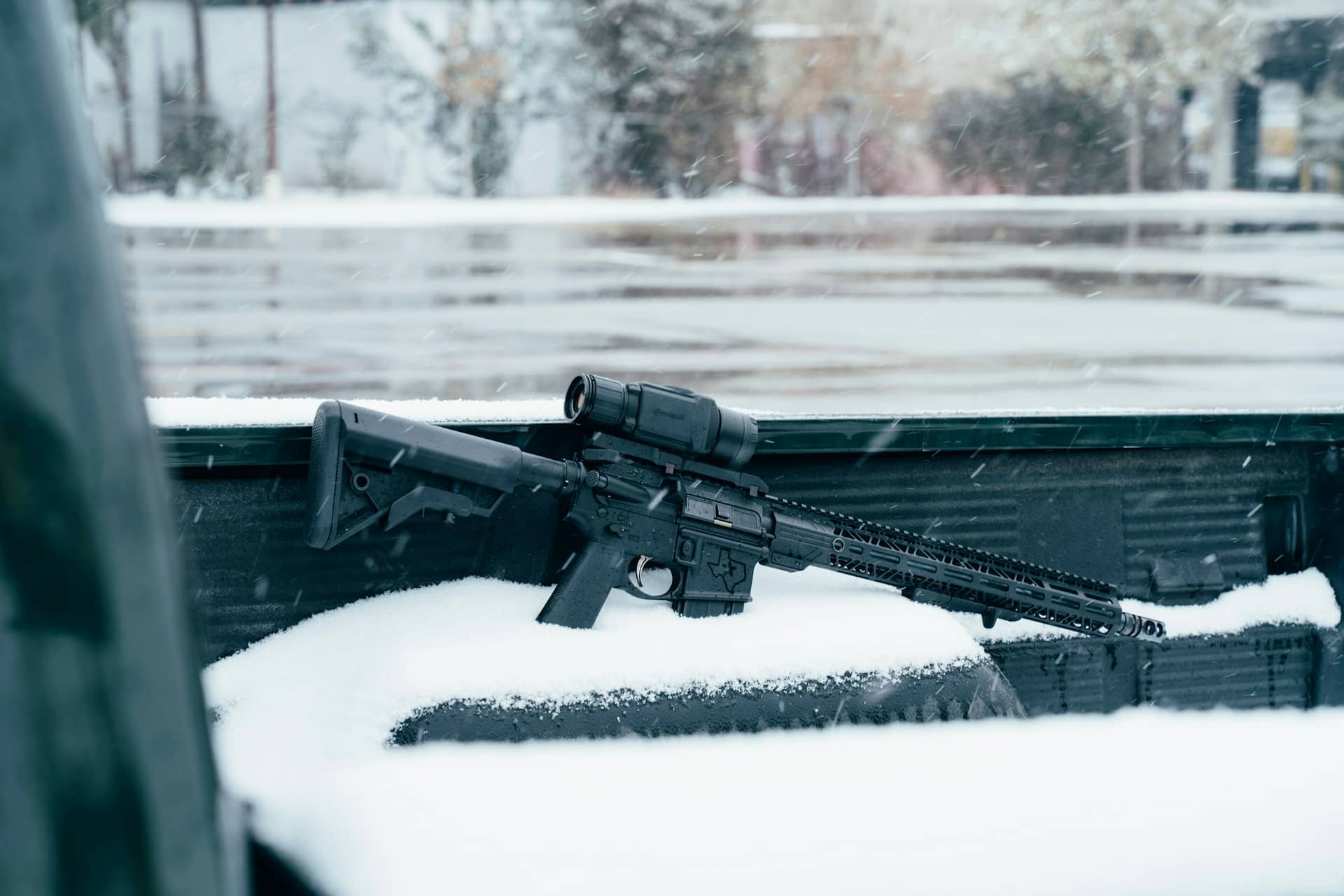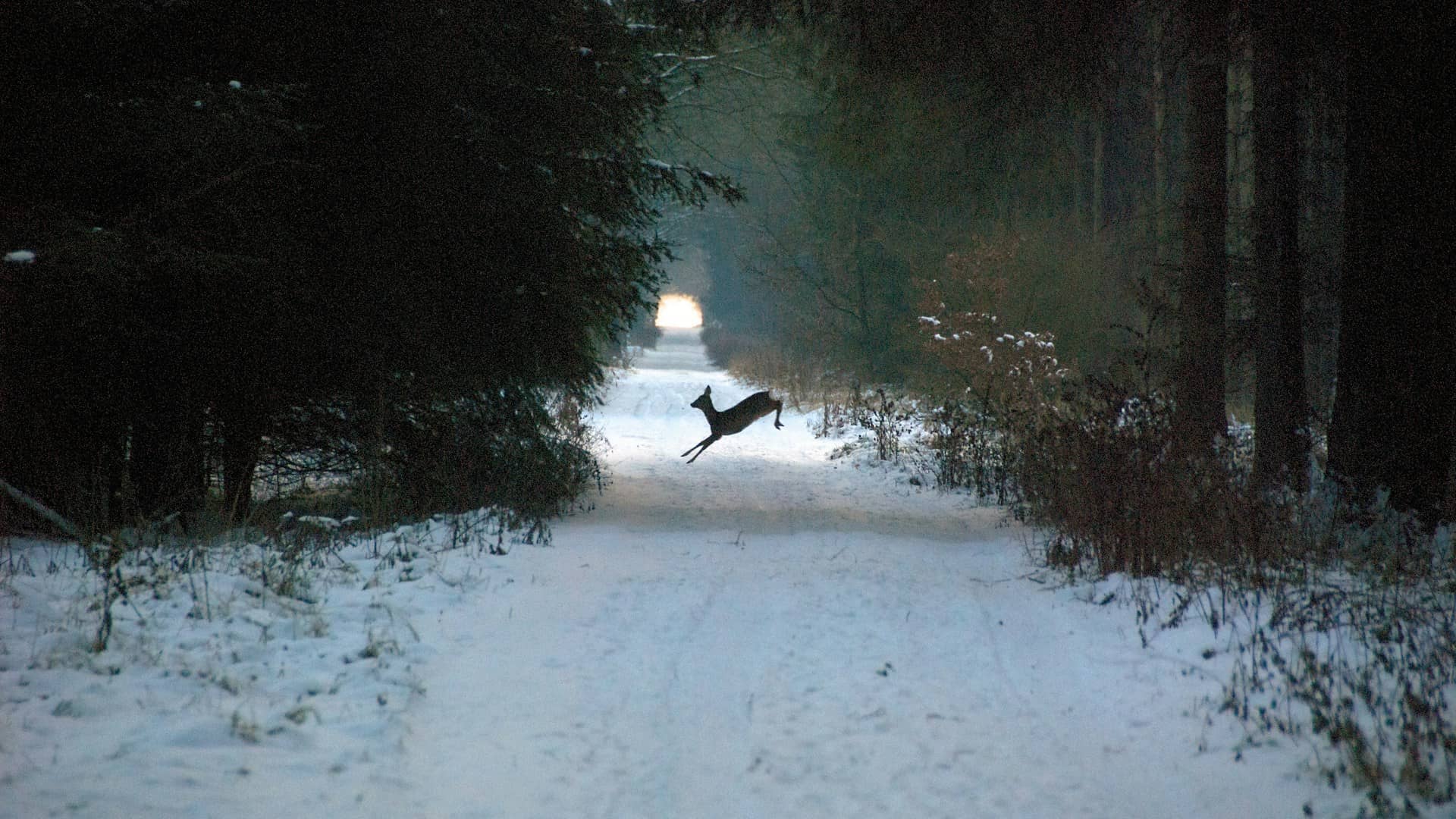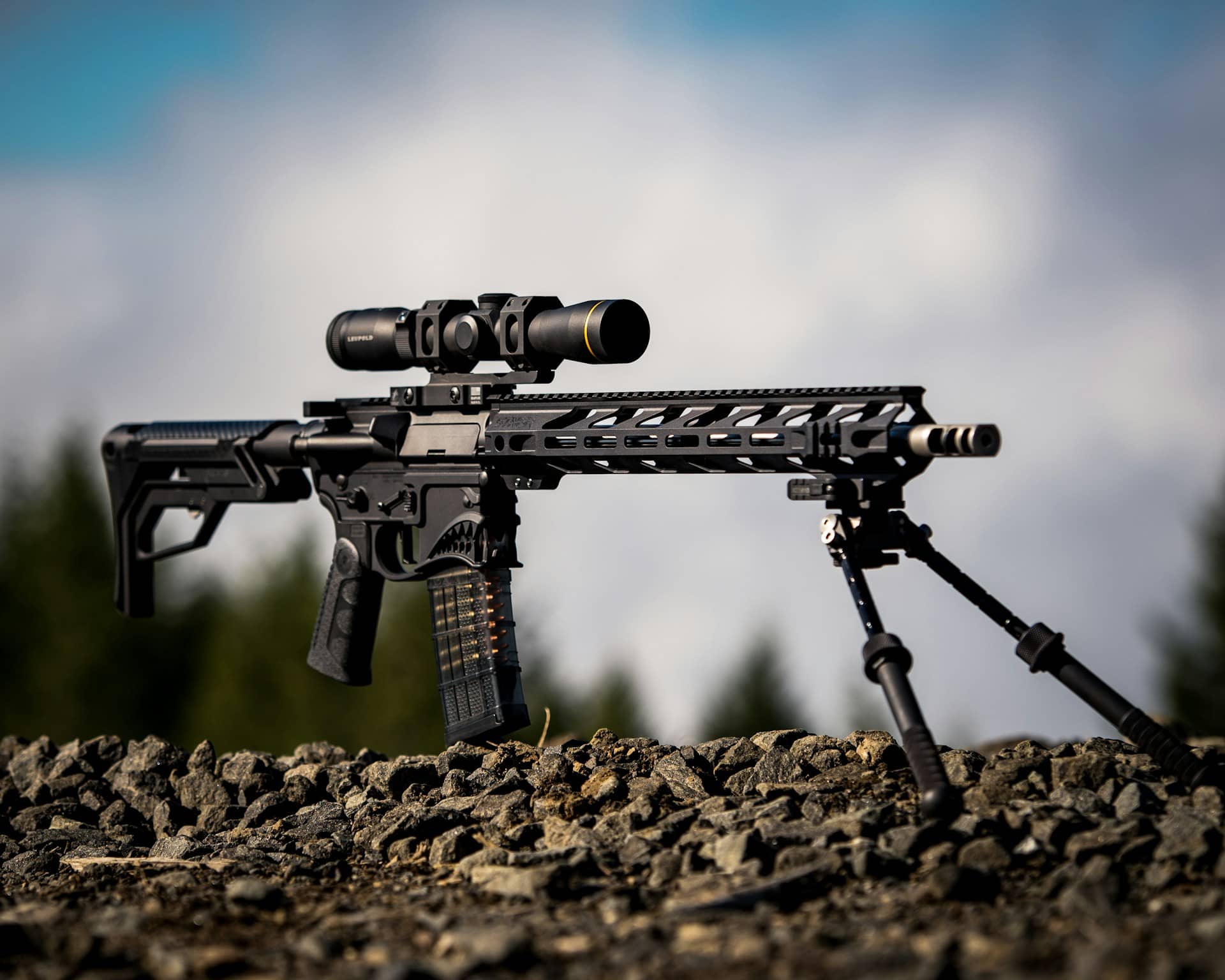
When you take your rifle to the shooting range for target practice, you probably do it more often on warmer days when you can be comfortable outside. But when you take your rifle out to hunt, you may have some very chilly and even snowy mornings. It’s important to remember that in winter, firearms perform just a little bit differently. The answer to the question, “Does cold weather affect rifle accuracy?”, is a resounding “yes!” But it may not be for the reasons you think.
Here are several ways the cold can have an impact on the accuracy of your firearm.
Cold Temperatures
In extreme cold, there is the potential for a firearm malfunction. Lubricants can freeze or simply not work as well. Then, when you bring it inside, condensation could form as a result of the changing temperatures. That excess moisture can turn into rust.
For this particular winter hazard, firearms should be completely dry and possibly even cleaned before storing them, even for a short period of time.
Denser Air
The colder the air, the more density it has. This increase in density will create more drag on the bullet, affecting your overall rifle accuracy when it comes to using firearms in winter weather.
For example, Army guidelines state that a bullet will hit the target one inch lower every 100 yards if the temperature drops just 20 degrees. That’s a big difference. If you zeroed your weapon in the summer when it was 80 degrees, but now it’s fall, and it’s only 40 degrees while you’re hunting, you should zero your weapon again.

More Unpredictable Gunpowder
Certain types of gunpowder will have special powders mixed into them to minimize the impact the cold will have. But others aren’t going to perform as effectively in the cold as they do when it’s warm outside. They’ll be much harder to ignite, and this will reduce the pressure that builds up in your firearm and potentially slow down the bullets fired from them, which will impact your accuracy at times.
The tough part about this particular aspect of things is that some gunpowder can be finicky in the cold. A difference of just a few degrees could be the difference between a rifle firing just fine and allowing you to be as accurate as ever and you not being able to hit a target no matter how hard you try.
Shakier Hands
When you know you’re going to be using firearms in winter conditions, you’ll want to bundle up as best you can. By doing this, you’ll be able to keep your body warm for the most part and avoid shivering from head to toe. You’ll also be able to steer clear of having to deal with shaky hands.
Your hands will likely shake at least a little bit because of the cold, though, and even the slightest movements are going to affect your accuracy when you’re firing your rifle. It’s why you might want to give thought to using something like a bipod to hold your rifle steady in the cold so that your shaky hands don’t have too big of an impact on your ability to remain accurate.

The Mental Factor
When you’re wondering, “Does cold weather affect rifle accuracy?”, you might not spend much time thinking about the role your mind can play in answering this question. But the truth is that in winter, firearms aren’t the only things affected. Being out in the cold for hours on end can make your mind unsteady and stop you from being able to concentrate. Even the slightest lack of focus could come back to bite you by making it difficult for you to aim your rifle accurately.
Prior to heading out on a hunting trip, you should do more than just practice with your firearms in winter. You’ll also want to make a push to become more headstrong, so you don’t have to be concerned about your mind playing tricks on you in the cold. The easier it is for you to concentrate on keeping your mind steady while you hunt in the cold, the easier it will be to maintain a high level of accuracy when you have your rifle in your hands.